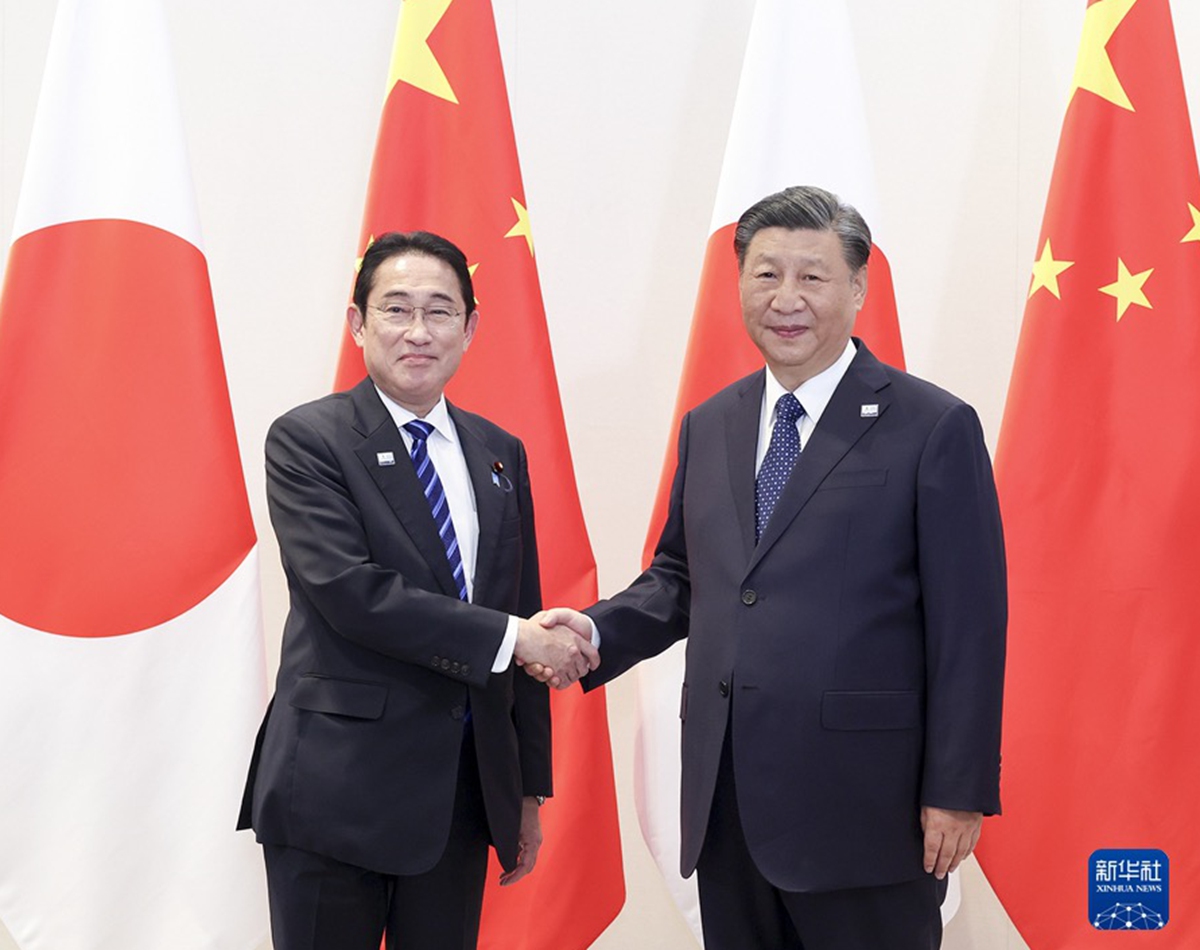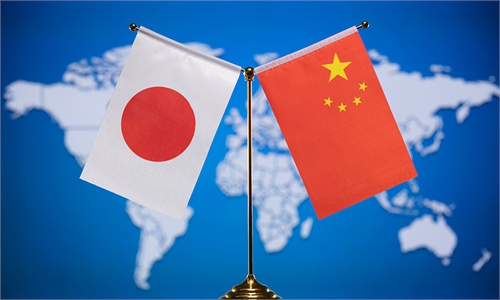Ties with China will stay on track if Japan keeps word, principles: Global Times editorial

Chinese President Xi Jinping meets with Japanese Prime Minister Fumio Kishida in San Francisco, the US, Nov. 16, 2023.Photo: Xinhua
Chinese President Xi Jinping and Japanese Prime Minister Fumio Kishida met on Thursday in San Francisco, the US. This is the first talk between the two leaders since their meeting in Bangkok, Thailand in November last year. Again, it took place after a China-US summit, highlighting the interconnectedness between China-US ties and China-Japan relations.
This year marks the 45th anniversary of the signing of the China-Japan Treaty of Peace and Friendship, which established the foundation of peace, friendship, and cooperation between the two countries. Currently, China-Japan relations are at a critical period linking the past and future. A new direction is needed in this new historical period. This meeting serves as a significant juncture in the bilateral relationship.
In the past year, China-Japan ties have been overshadowed by the influence of China-US relations. Tokyo's policy toward China has largely followed and depended on Washington. Japan even adopted a more radical stance than the US on the Taiwan question and South China Sea affairs. Japan has also been compliant in cooperating with the US on high-tech export controls on China and has shown a proactive attitude toward introducing external military forces like NATO into the Asia-Pacific. These factors have placed new obstacles in the way of China-Japan relations.
Additionally, Japan's irresponsible handling of the Fukushima nuclear-contaminated water, and old issues like historical disputes and the Diaoyu Islands question have all harmed the foundation of China-Japan relations. Japan needs to make timely adjustments to halt any further damage. Against this backdrop, the meeting between the leaders of China and Japan was a highly anticipated one, particularly by Japanese society, which yearns for an improvement in the bilateral relationship.
During the meeting, the two leaders reiterated their commitment to the principles and consensus stipulated in the four political documents between the two countries, reaffirmed the position of comprehensively advancing a mutually beneficial relationship based on common strategic interests, and agreed to dedicate themselves to jointly building a constructive and stable China-Japan relationship that meets the demands of the new era.
This represents a fundamental readjustment of China-Japan relations, and aims to forge a constructive and stable relationship in the future. It is worth noting that the term "strategic and mutually beneficial relations" has not been used for quite some time, and its mention on this occasion clearly contains the leaders' special expectations for China-Japan relations.
Neighbors can be chosen, but neighboring countries cannot. Despite their ups and downs, China-Japan relations have generally maintained a momentum of development because the friendship and cooperation between the two align with the fundamental interests of their peoples. This remains true even during periods of strained relations.
The China-Japan Joint Statement on All-round Promotion of Strategic Relationship of Mutual Benefit, signed 15 years ago, serves both as a path and a direction. However, over time, the relationship between China and Japan has gradually deviated from it. Now is the time to return to the right track. President Xi emphasized the need to maintain the original intention of normalizing bilateral relations, suggesting a commitment in this regard.
In recent years, amid the strategic shift in the US toward containing and pressuring China, Tokyo has shown great enthusiasm. There is often a sense that when China-US relations are tense, Japan appears more assertive toward China, and when China-US relations ease, Japan seeks to improve relations. China never interferes in Japan's dealings with third countries, because developing China-Japan relations is based on the actual interests of both nations. As long as it is beneficial to both countries and their peoples, we support it. The facts also prove that only by independently and autonomously handling and developing China-Japan relations can positive energy be created for both countries and the region. In this regard, Japan, in particular, should avoid self-deprecation in its strategic considerations.
"Drawing lessons from history, and looking forward to the future" is the correct way for China and Japan to get along. President Xi, when stressing major questions of principle related to history and Taiwan, urged Japan to "keep its word and stick to principles." Observant individuals may notice that urging the Japanese side to "keep its word and stick to principles" has appeared multiple times in China's diplomatic discourse regarding Japan. It is a term readily understood within the Confucian cultural sphere. While it might be challenging to translate into English, it is likely well understood by the Japanese people. Adhering to the one-China principle and the spirit of the four political documents between China and Japan, adhering to the political consensus of being "cooperative partners and not posing threats to each other" are both expressions of this term. By keeping its word and sticking to principles, the China-Japan relationship will stay on the right track.
According to media reports, Japan showed a proactive and positive approach toward arranging a meeting with the Chinese leader in San Francisco. It is said that for this meeting, Japan undertook extensive off-site activities, with the Secretary General of Japan's National Security Secretariat, Takeo Akiba, even making a special trip to Beijing. The significance of this meeting in guiding the relationship between the two countries is self-evident. This also reflects China's sense of responsibility as a major country and its goodwill in bringing about regional peace and stability. Japan should take more concrete actions and meet China halfway. This is not only in the long-term interests of both China and Japan, but also crucial for Japan's national reputation.

